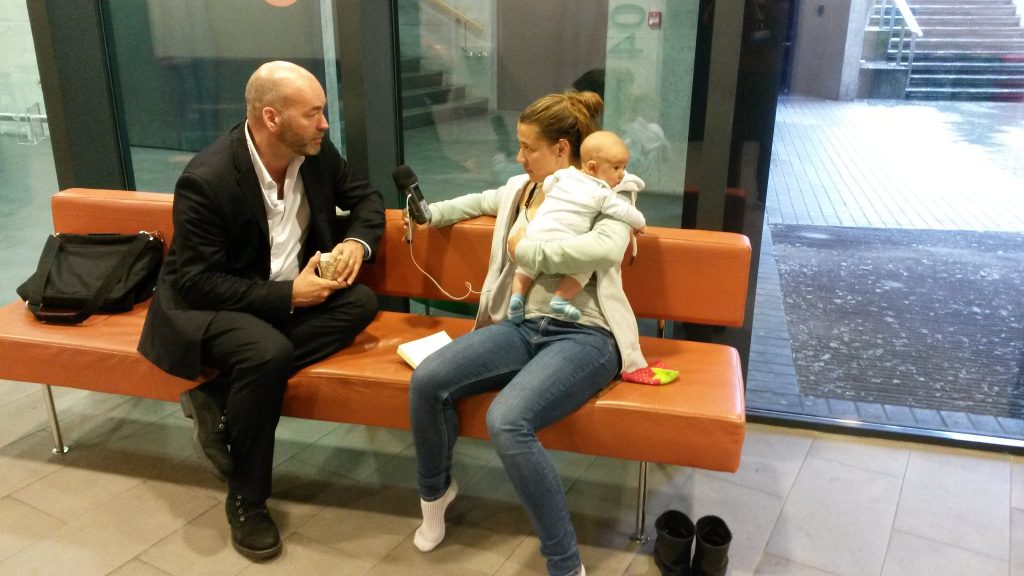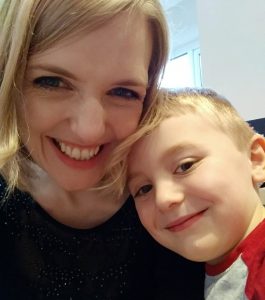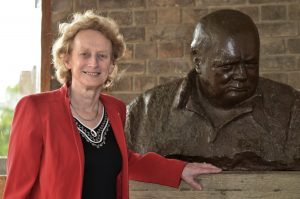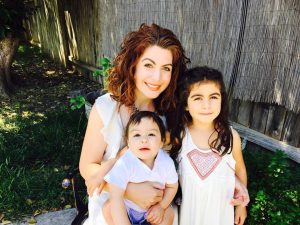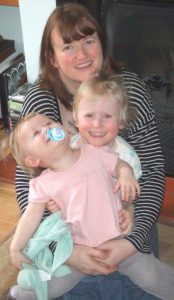Podcast: Play in new window | Download
There’s no perfect time to start a family, says Rebecca Johnson, but do make sure you think about it in terms of your biology and health, as well as your career plans.
“It’s not going to be easy, whatever road you go down. I’m exhausted all the time!”
Rebecca Johnson was in her forties when she had her daughter in 2017. She is the dean of academics at the Marine Corps War College, and had been in this position for about a year and a half before she had her daughter last year.
I wanted to know whether it was a conscious decision to wait until this stage of her career/life to start a family. She had always known she’d wanted to be married before starting a family, and it just happened that she didn’t meet her husband until later in life. But, there are many young women who can’t decide when is the right time to have a family. Rebecca’s advice falls into two clear categories: biology and what’s right for you and your career.
- Biology: Know yourself in terms of your medical history. “I was almost 42 when my daughter was born… If your mum went through early menopause, waiting until your early forties might not be a responsible option for you.”
- Career stage: “I’ve known friends of mine who had their children when they were completing a PhD programme. I don’t think women necessarily have to wait to have their children, to develop themselves professionally. But was I would say though, is that I absolutely feel like since I’m more senior in my field I’ve got more credibility, I’ve got a reputation already.”
As a dean, Rebecca has to attend conferences to represent her school and her discipline. It’s not often that you see a senior academic with a tiny one in tow. For some, this is a big deal. For Rebecca, it’s not.
“She’s a baby… you see babies all the time. Like, what’s the drama? She’s not screaming in the room. She’s not disrupting the panel… The fact that the baby’s sitting here, breathing oxygen and not being in anyway disruptive, who cares?”
Having children doesn’t make working easy, but it can have a positive impact on your working career.
“She certainly makes me more efficient time manager. So this bias that working mums are somehow less capable I find laughable. Because I feel like I get so much more done now. It’s survival.”
Guilty feelings are something that every working mother has to deal with, no exceptions. But the placement of guilt is different for every woman, depending on which parts of your life take the hit. For Rebecca, it’s the home (“our house is a disaster”), but she also needs to make sure her relationship with her husband doesn’t take a hit.
“There’s a lot of me-and-her time, and him-and-her time. And a lot of the me-and-him time, is household management. And keeping the marriage relationship, when you’re exhausted. And I’m not just talking about sex… but just the general relationship: having a connection, a friendship and a bond, and emotional bond with your partner. It’s easy to let that slide because you know it’s good and there are all these other fires you’ve got to put out…. you need to stay invested in it.”
Based on her experiences, Rebecca pulled together some lovely bits of advice:
- “If you want to start a family, and you feel like you’re ready enough… you don’t have to wait until you’re in your forties. Go for it.”
- Be prepared to make some adjustments.
- Don’t worry about what other people think. “You don’t have to make it your responsibility to change other peoples minds. You live your life.”
- Your career doesn’t have to suffer. “Don’t pull back from your professional responsibilities, stay involved in your career and continue to try for those promotions and professional opportunities, but be thinking about how you can incorporate family, in terms of a child, into your career. And certainly, as soon as you know you’re pregnant, be thinking about:
- Who can cover your responsibilities when you’re on maternity leave?
- What does maternity leave look like at your organisation?
- What do childcare options available to you?
- How are you going to accommodate work and this new family that you’re building?
- Plan, plan and plan some more (but be aware of bumps in the road) “The more you can plan for it, and find ways within that plan to really invest in your own professional development (not silly committee work that doesn’t have anything to do with your professional growth)… the better position you’re in to continue to develop through the pregnancy and through childhood.””
Don’t forget you can also listen (and subscribe!) to the ScienceMamas podcast on iTunes and on SoundCloud!
